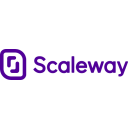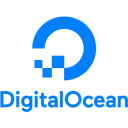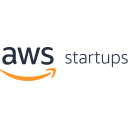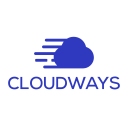Scaleway vs DigitalOcean: Which tool is better?
- 01Scaleway vs DigitalOcean: overview
- 02What's the difference between Scaleway and DigitalOcean?
- 03Scaleway pros and cons
- 04DigitalOcean pros and cons
- 05Scaleway compared to DigitalOcean
- 06DigitalOcean compared to Scaleway
- 07Features comparison
- 08Scaleway vs DigitalOcean: Which is the best for your business?
- 09Promotions on Cloud Computing software
- 10Alternatives to Scaleway & DigitalOcean
Save up to $5,000 on DigitalOcean
Save up to $5,000 on DigitalOcean
Are you tired of struggling with server management and deployment? As fellow developers, we know the frustration of dealing with server complexities and technical intricacies. As a developer your time is valuable and you need to focus on building your applications rather than managing the server complexities. We understand your pain and therefore in the quest for the right cloud infrastructure tool, we evaluated multiple options and are presenting you with the two most reliable and best cloud ecosystem.
Whether a seasoned developer or a newcomer, seeking an intuitive platform to kickstart your projects is essential part of the application journey. The choice between Scaleway and DigitalOcean can significantly impact your development experience. With both platforms offering a range of features and tools, it's essential to examine their strengths and weaknesses to make an informed decision that aligns with your development goals.
Scaleway vs DigitalOcean: overview
Scaleway and DigitalOcean are prominent cloud service providers, each with distinct features tailored to different user requirements.
Scaleway is recognized for its user-friendly interface and quick server deployment. Its simplified platform suits startups and smaller businesses seeking cost-effective and straightforward cloud solutions. DigitalOcean, on the other hand, offers a comprehensive range of cloud services, including scalable virtual machines and managed databases. It caters to developers and businesses needing flexibility and advanced functionalities.
Let's now compare Scaleway vs DigitalOcean, examining their offerings and benefits to aid your decision in choosing the optimal cloud service for your specific needs.
What's the difference between Scaleway and DigitalOcean?
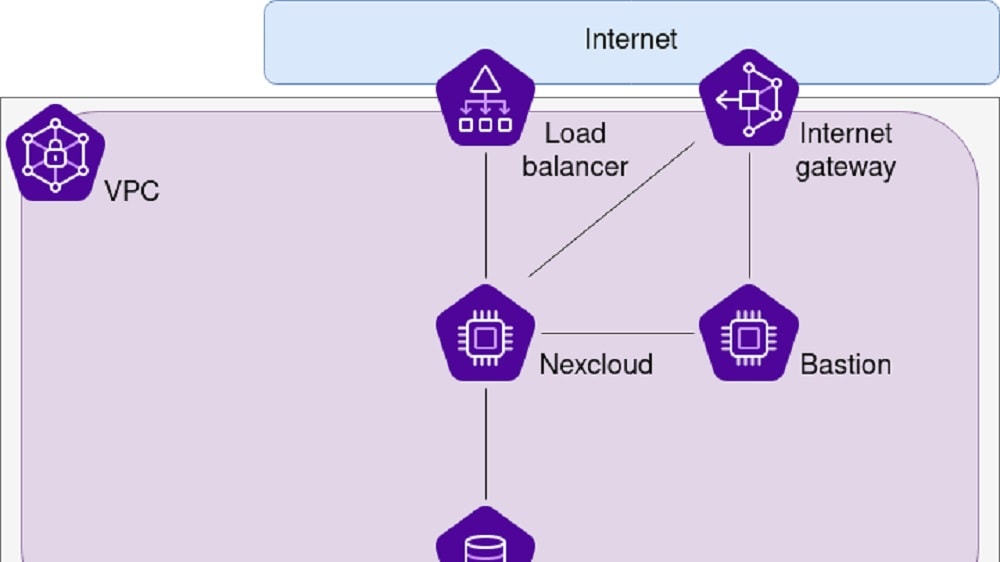

After conducting a comprehensive analysis comparing Scaleway and DigitalOcean, we uncovered two standout features that truly differentiate these platforms. Scaleway distinguishes itself as a multi-cloud provider, offering unparalleled flexibility in managing and deploying workloads across diverse cloud environments. This becomes particularly advantageous when you need a combination of services from various cloud providers. The convenience is further enhanced by a unified interface, streamlining the management process for seamless operations.
On the other hand, DigitalOcean adopts a streamlined approach, emphasizing simplicity and user-friendliness. This aspect is particularly appealing to developers, providing an uncomplicated and straightforward cloud experience. This user-centric design is especially beneficial for newcomers to the realm of cloud computing, offering an accessible entry point.
Now, let's delve deeper into the realm of infrastructure. Scaleway takes the lead with its dedicated Bare Metal servers. Tailored for applications demanding substantial computing power and unwavering performance, Scaleway's Bare Metal option is the preferred choice for resource-intensive workloads and projects requiring dedicated resources.
Meanwhile, DigitalOcean offers Droplets, which are virtual machines providing dedicated environments while sharing hardware resources. Although not traditional bare metal, Droplets provide a level of dedicated resources that cater to a wide range of use cases. This strikes a delicate balance between performance optimization and ease of use, making it an appealing option for various scenarios.
In conclusion, the distinction between Scaleway and DigitalOcean lies in their approaches to multi-cloud management and infrastructure provisioning. Scaleway excels in offering a versatile multi-cloud experience with dedicated Bare Metal servers, while DigitalOcean focuses on providing a user-friendly platform with its Droplets that balance performance and accessibility.
$200 in credits on DigitalOcean
Get $200 in credits on DigitalOcean and up to $200 savings with Secret.
Scaleway pros and cons
What are the advantages of Scaleway?
- Affordability: Scaleway offers competitive pricing, making it an attractive choice for startups and small businesses looking for cost-effective cloud services.
- Diverse services: With a wide range of services including virtual instances, dedicated servers, Kubernetes, and storage options, Scaleway provides versatility to suit different workload requirements.
- User-friendly interface: Scaleway's intuitive dashboard simplifies management, making it accessible to users with varying levels of technical expertise.
- Bare metal servers: Scaleway's dedicated Bare Metal servers offer robust performance for resource-intensive applications and workloads.
- Multi-cloud approach: Scaleway's multi-cloud capabilities allow seamless management of workloads across different cloud environments, enabling flexibility and scalability.
What are the disadvantages of Scaleway?
- Limited global reach: While Scaleway has data centers in several regions, its global presence is not as extensive as some other cloud providers, potentially limiting geographic reach.
- Support quality: Some users have reported inconsistent customer support experiences, which can impact issue resolution and overall satisfaction.
- Service complexity: While Scaleway's interface is user-friendly, certain advanced configurations may require more technical knowledge.
- Third-party integrations: Scaleway's ecosystem of third-party integrations is not as extensive as some other cloud providers, potentially limiting compatibility with certain tools.
- Documentation: While Scaleway provides documentation, some users have noted that more comprehensive and detailed guides could improve the overall user experience.
Compare Scaleway to other tools
DigitalOcean pros and cons
What are the advantages of DigitalOcean?
- Simplicity and user-friendly: DigitalOcean's straightforward interface and user-friendly setup make it an ideal choice for developers and small businesses new to cloud computing.
- Predictable pricing: DigitalOcean offers transparent and predictable pricing, allowing users to easily budget for their cloud usage without unexpected surprises.
- Quick deployment: Droplets, DigitalOcean's virtual machines, can be deployed rapidly, enabling developers to start working on projects quickly.
- Developer-focused: With a strong focus on developers, DigitalOcean provides an array of resources, tutorials, and a vibrant community to help users learn and troubleshoot.
- Scaling options: DigitalOcean offers a variety of droplet sizes and additional services, allowing users to scale their resources as their applications grow.
What are the disadvantages of DigitalOcean?
- Limited enterprise features: While suitable for many startups and small businesses, DigitalOcean may lack some advanced features and enterprise-grade capabilities.
- Global data center coverage: DigitalOcean's data centers are primarily concentrated in certain regions, potentially limiting global reach compared to larger cloud providers.
- Complex workloads: While it's great for simpler workloads, DigitalOcean may face limitations for highly complex or resource-intensive applications.
- Networking options: Users seeking advanced networking capabilities, such as virtual private clouds, might find DigitalOcean's networking features somewhat limited.
- Support response time: Some users have reported longer support response times during peak periods, which could impact issue resolution.
Compare DigitalOcean to other tools
Scaleway compared to DigitalOcean
When contrasting Scaleway and DigitalOcean, Scaleway emerges with its unique multi-cloud approach. It offers exceptional flexibility for efficiently managing and deploying workloads across diverse cloud environments, making it advantageous for businesses requiring a mix of services from different providers. This capability is seamlessly unified within a user-friendly interface, simplifying management tasks.
Moreover, Scaleway's dedicated Bare Metal servers shine for resource-intensive applications, providing unmatched computing power. This makes it a preferred option for projects demanding unwavering performance and dedicated resources.
Selecting between Scaleway and DigitalOcean hinges on your specific needs. Scaleway shines for multi-cloud versatility and robust bare metal options, whereas DigitalOcean excels in user-friendliness and rapid deployment.
Is Scaleway better than DigitalOcean?
Determining whether Scaleway is superior to DigitalOcean hinges on individual needs.
Scaleway's blend of bare metal servers and cloud instances provides exceptional flexibility, such as their Kubernetes Kapsule. Conversely, DigitalOcean's simplicity is a boon for startups seeking ease of use. For instance, if your project involves resource-intensive tasks, Scaleway's dedicated Bare Metal could be more suitable. However, for straightforward deployments where a user-friendly interface is crucial, DigitalOcean might excel.
The choice should be based on specific requirements, as both platforms offer competitive pricing, reliable performance, and valuable features that cater to diverse business needs.
What is Scaleway best used for?
Scaleway's versatility shines when tailored infrastructure is crucial. An e-commerce platform needing both powerful BareMetal servers for data processing and scalable cloud instances to accommodate traffic fluctuations can leverage Scaleway effectively.
Scaleway's Kubernetes Kapsule is ideal for businesses delving into containerized applications. Its commitment to sustainability, seen in energy-efficient data centers and eco-friendly practices, aligns with environmentally-conscious organizations.
So, whether optimizing performance, ensuring seamless scalability, or emphasizing ecological responsibility, Scaleway offers a tailored approach that suits various business goals.
Can Scaleway replace DigitalOcean?
Scaleway can replace DigitalOcean in certain scenarios, contingent upon user needs and familiarity with the platforms. A tech-savvy startup well-versed in managing diverse server types might prefer Scaleway's flexible range of BareMetal and cloud instances.
On the other hand, a small business aiming for quick, hassle-free deployment without intricate configurations could find DigitalOcean's straightforward Droplets more appealing. Scaleway's broad spectrum of services, though advantageous, might be daunting for beginners seeking simplicity. In essence, while Scaleway offers a comprehensive solution, it may be best suited for those seeking tailored customization and resource control.
Is Scaleway cheaper than DigitalOcean?
The cost comparison between Scaleway and DigitalOcean is nuanced and hinges on specific usage scenarios. Scaleway’s pricing often emerges as the more budget-friendly option, particularly with their BareMetal instances that offer significant computing power at competitive rates.
A startup seeking robust computing resources may find Scaleway's cost-efficient solutions appealing. However, DigitalOcean's pricing structure might align better with certain projects, especially those requiring straightforward virtual machines or a simplified cloud experience. Therefore, while Scaleway can be cost-effective, it's essential to evaluate individual requirements and potential savings against each platform's pricing tiers.
Is there a better Cloud Computing software than Scaleway?
Whether there's a "better" software than Scaleway largely hinges on your particular cloud infrastructure needs and goals. Scaleway provides a suite of cloud services that cater to various requirements, from virtual instances to object storage solutions.
Nonetheless, alternatives to Scaleway like Amazon Web Services (AWS), Google Cloud Platform (GCP), and Microsoft Azure might be more aligned with certain operational demands. AWS offers a comprehensive and mature set of services, while GCP is known for its high-performance computing and data analytics capabilities. Azure integrates deeply with Microsoft's software ecosystem.
DigitalOcean compared to Scaleway
In comparing DigitalOcean and Scaleway, a distinct contrast emerges in their cloud computing approaches. DigitalOcean, renowned for its simplicity, offers a developer-friendly environment with Droplets for rapid virtual machine deployment. This is particularly advantageous for startups and small businesses seeking an easy entry into the cloud landscape.
DigitalOcean's Droplets provide dedicated environments, catering to a range of projects, while Scaleway's dedicated Bare Metal servers take the spotlight for resource-intensive applications requiring exceptional computing power.
The choice between DigitalOcean and Scaleway depends on your specific requirements. DigitalOcean excels in simplicity and rapid deployment, making it ideal for smaller workloads and developer-centric tasks.
Is DigitalOcean better than Scaleway?
The comparison between DigitalOcean and Scaleway hinges on specific requirements. DigitalOcean's user-friendliness and active community support make it a preferred option for startups seeking hassle-free cloud deployment.
Conversely, Scaleway's extensive offerings, including BareMetal instances and a multi-cloud approach, cater to businesses demanding flexibility and customization. For instance, a small e-commerce venture might favor DigitalOcean's simplicity, while a research institute with varied workloads could find Scaleway's versatility more advantageous.
Ultimately, the determination of "better" relies on aligning the platform's strengths with the unique needs of each user or organization.
What is DigitalOcean best used for?
DigitalOcean finds its prime utility among small to medium-sized enterprises and developers aiming for seamless cloud services. Its user-friendly interface, transparent pricing model, and robust customer assistance are particularly appealing.
A startup launching a web application can swiftly deploy a server using DigitalOcean's Droplets. Additionally, a freelance developer might appreciate its swift scalability for projects demanding quick expansion. Its ease of use and efficient management are ideal for those who prioritize hassle-free cloud provisioning and management without delving into complex configurations.
Can DigitalOcean replace Scaleway?
DigitalOcean has the potential to replace Scaleway, particularly for those seeking an intuitive interface and simple cloud services. However, for individuals or businesses requiring intricate infrastructure customization and diverse options, Scaleway remains a compelling choice. A startup aiming for rapid deployment of web applications might opt for DigitalOcean's Droplets.
On the other hand, a company with intricate networking requirements, such as creating private virtual networks between servers, might find Scaleway more suitable. It hinges on your specific preferences and needs, weighing the ease of use against the depth of customization.
Is DigitalOcean cheaper than Scaleway?
When comparing the costs between DigitalOcean and Scaleway, it's important to evaluate your usage patterns. If you're a developer running a few small virtual machines for testing purposes, DigitalOcean's straightforward pricing structure might be more cost-effective.
Conversely, if your project demands a combination of powerful bare metal servers and cloud instances with diverse configurations, Scaleway's pricing could potentially offer a better value. Furthermore, consider geographical location – if your application requires data centers in specific regions, one provider might offer more cost-effective options based on server location.
In essence, while DigitalOcean can be budget-friendly for certain use cases, Scaleway's pricing flexibility accommodates a broader range of complex infrastructure requirements.
Is there a better Cloud Storage software than DigitalOcean?
Determining if there's a better software than DigitalOcean depends on your unique cloud computing needs and goals. DigitalOcean simplifies cloud infrastructure for developers with its straightforward virtual servers and scalable resources.
However, alternatives to DigitalOcean like Amazon Web Services (AWS), Google Cloud Platform (GCP), and Microsoft Azure offer their own advantages. AWS has a vast array of services and global reach, GCP excels in data analytics and machine learning, and Azure is deeply integrated with Microsoft's software and services. The ideal choice depends on specific factors such as your technical requirements, budgetary considerations, and the scale of your operations.
$5,000 in credits for 1 year on DigitalOcean
Get $5,000 in credits for 1 year on DigitalOcean and up to $5,000 savings with Secret.
Features comparison
DigitalOcean is Better than Scaleway for Hosting and Storing
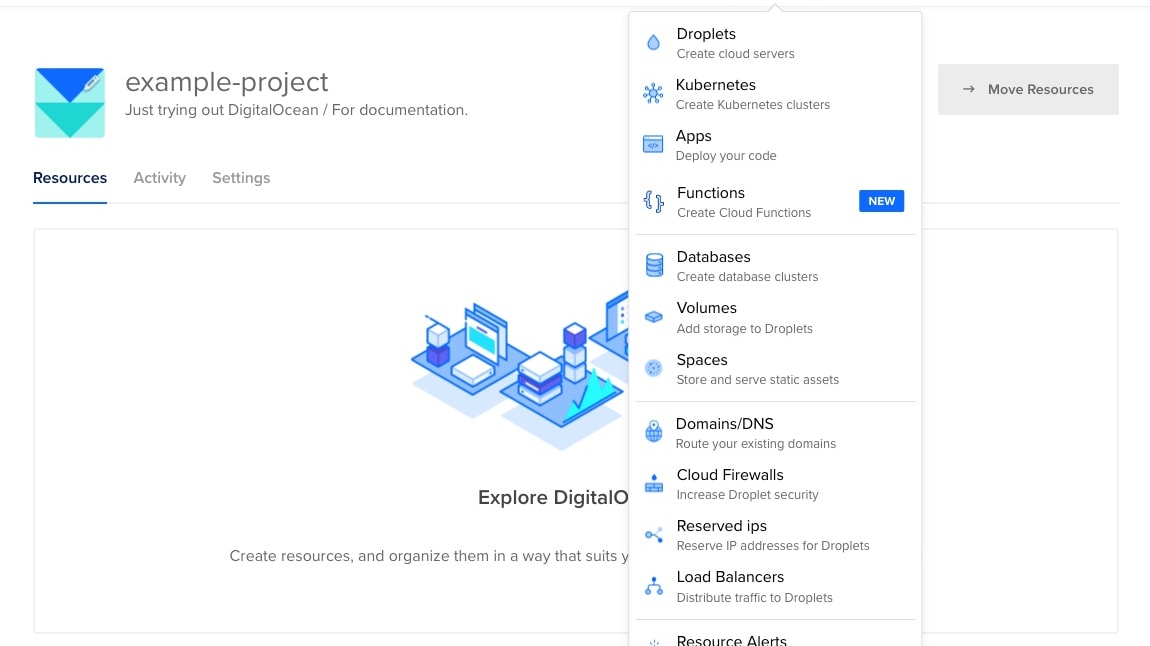
DigitalOcean takes the lead over Scaleway when it comes to hosting and storing data. DigitalOcean's comprehensive suite of features ensures secure and reliable cloud storage, offering users peace of mind when it comes to data management.
Its scalable Block Storage and Object Storage solutions cater to businesses of all sizes, providing seamless data access and storage expansion. While Scaleway's SSD-powered cloud servers enhance website performance, DigitalOcean's dedicated emphasis on versatile and scalable data hosting positions it as a superior choice for businesses seeking robust and efficient data storage solutions.
DigitalOcean Takes the Lead Over Scaleway for User-Friendliness

DigitalOcean emerges as the front-runner for user-friendliness when pitted against Scaleway.
Both platforms prioritize accessibility with intuitive interfaces and thorough documentation suitable for various technical proficiencies. However, DigitalOcean gains an advantage by offering an exceptionally streamlined dashboard navigation, simplified configurations, and effortless setups. Its pre-configured Droplets, along with the convenience of deploying 1-click applications, present a seamless experience, catering even to those less familiar with the technical intricacies.
While Scaleway strives to provide user-friendliness, occasional instances of intricate configuration and management complexities have been reported, potentially necessitating a higher degree of technical expertise.
DigitalOcean Boasts a Wider Range of Integrations Compared to Scaleway

DigitalOcean distinguishes itself by offering an extensive array of integration possibilities, enhancing its core cloud services with seamless connections to various tools and platforms.
DigitalOcean integrates smoothly with popular DevOps tools like Jenkins and Ansible, facilitating streamlined workflows for development and deployment. Furthermore, its compatibility with monitoring and alerting tools such as Prometheus and Grafana enables efficient system health tracking and optimization.
While Scaleway also offers integration options, DigitalOcean's broader spectrum of integrations positions it favorably for businesses seeking a well-connected cloud computing environment.
DigitalOcean Offers More Robust Database Management than Scaleway
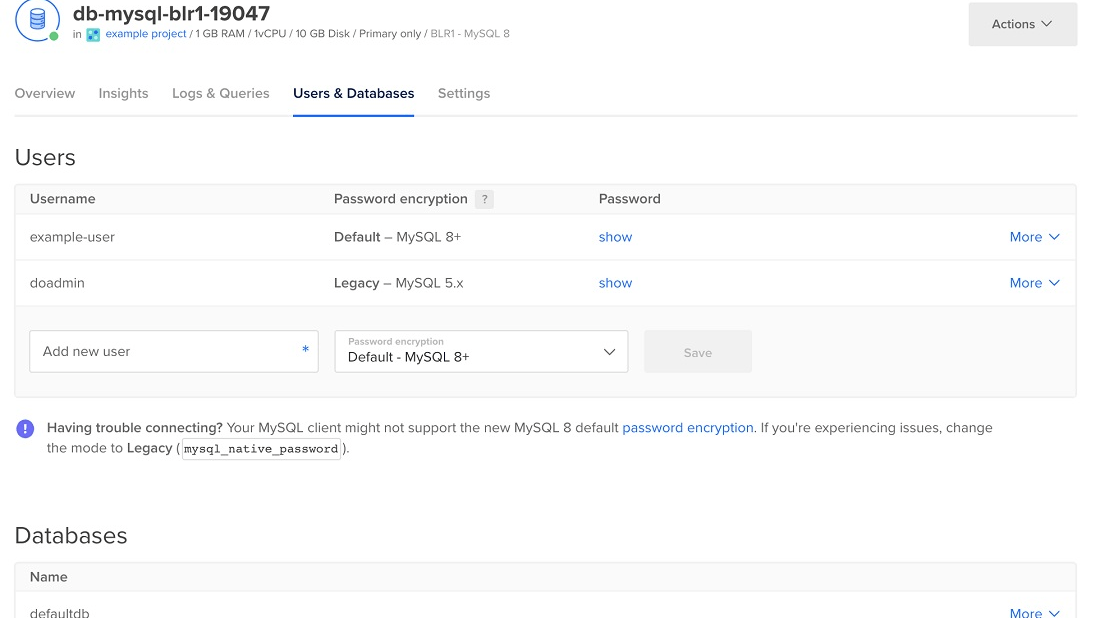
DigitalOcean stands out with its comprehensive and hassle-free database management capabilities, offering fully managed solutions for MySQL, PostgreSQL, and Redis databases.
This approach allows businesses to offload database administration tasks, ensuring optimized performance and reliability. For instance, DigitalOcean's managed databases automatically handle backups, updates, and scaling, allowing teams to focus on their core tasks.
In contrast, Scaleway lacks a direct equivalent to this feature, potentially requiring businesses to invest more time and effort into database management tasks. This database-centric advantage positions DigitalOcean as the preferred choice for organizations seeking robust and efficient database solutions.
Scaleway and DigitalOcean are Equally Exception for Scalable Storage
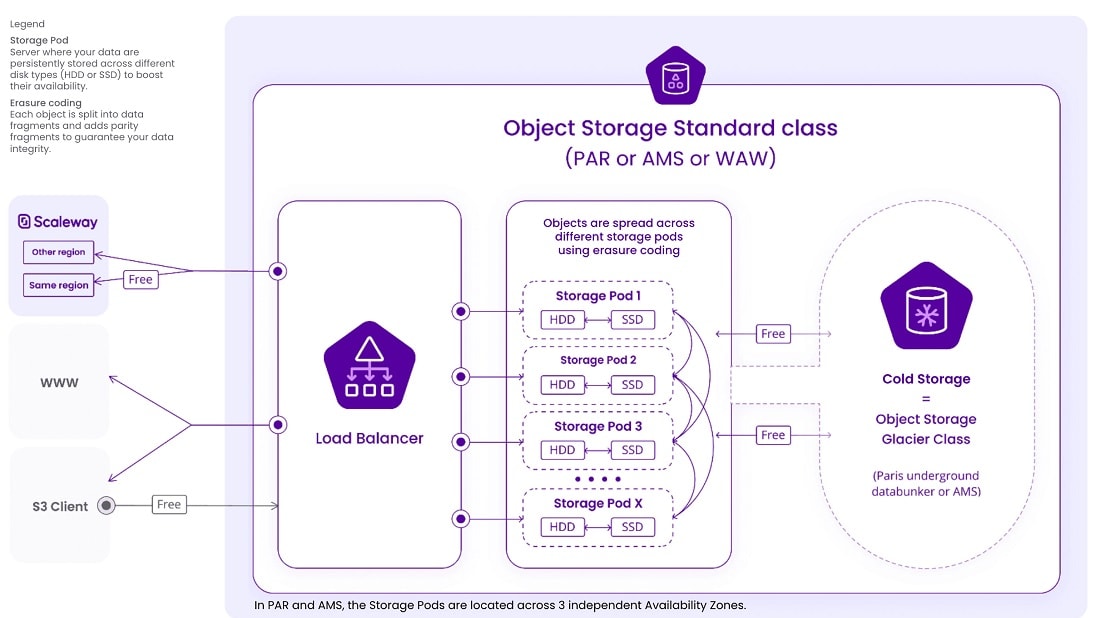
Scaleway and DigitalOcean both excel in providing exceptional and scalable storage solutions for businesses. Scaleway's object storage empowers users to store vast volumes of data seamlessly, ensuring high-performance access.
On the other hand, DigitalOcean's Object Storage offers a secure and flexible way to store unstructured data, accommodating growth effortlessly. These platforms enable businesses to handle expanding data requirements efficiently.
Whether it's Scaleway's capacity for massive data storage or DigitalOcean's versatility in accommodating unstructured data, both tools offer robust options for seamless scalability and storage integration within their respective cloud ecosystems.
Scaleway Surpasses DigitalOcean in Geographic Redundancy

Scaleway surpasses DigitalOcean in terms of geographic redundancy by strategically distributing its data centers across multiple geographical locations. This approach enhances data accessibility and reduces the risk of downtime for users.
Scaleway's presence in diverse regions allows businesses to serve their global audience with reduced latency. In contrast, while DigitalOcean's Droplets offer scalability, their focus is primarily on providing flexible computing instances rather than explicitly highlighting geographic redundancy measures. This distinction positions Scaleway as a robust choice for businesses seeking enhanced data availability and continuity across different locations.
DigitalOcean Excels Ahead of Scaleway for Resource Management
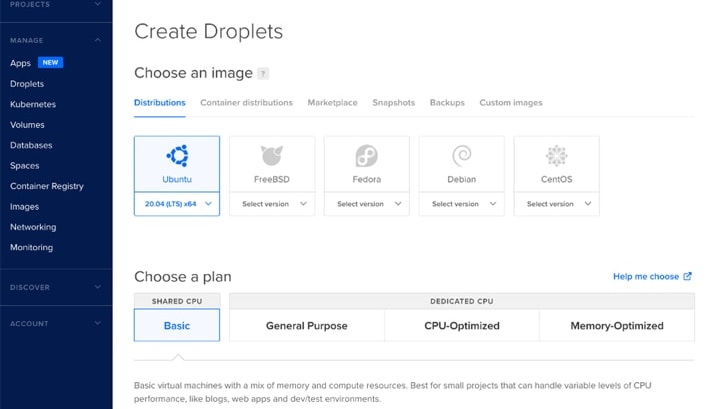
DigitalOcean takes the lead over Scaleway in resource management by offering a comprehensive suite of tools that seamlessly integrate with your development ecosystem.
DigitalOcean provides an array of resources, including an intuitive API, powerful CLI, and efficient container management solutions. These tools empower developers to streamline their workflows, automate tasks, and optimize resource utilization. While Scaleway excels in swift server deployment, it lacks the same level of resource management sophistication offered by DigitalOcean.
This distinction makes DigitalOcean a preferred choice for businesses seeking enhanced control and efficiency in managing their infrastructure resources.
Subscribe to our newsletters.
No FOMO here. Stay up-to-date on all the latest deals and news with our monthly newsletter straight to your inbox like 126,000+ entrepreneurs (+ Get 10% off on on our Premium Membership!)
Scaleway vs DigitalOcean: Which is the best for your business?
Scaleway is the best tool for you if:
- You prioritize intuitive interfaces and user-friendly cloud services that simplify the management of infrastructure for developers and businesses.
- Cost-effectiveness is key, and you’re looking for competitive pricing without compromising on essential features for cloud computing needs.
- You require scalable solutions with a European touch, including data centers in France that ensure compliance with EU regulations.
- Your projects benefit from flexible cloud servers, object storage, and seamless scalability for startups to large-scale enterprises.
- You desire a cloud provider that focuses on energy efficiency and renewable energy, aligning with your sustainability goals.
DigitalOcean is the best tool for you if:
- You're a developer or small to medium-sized business seeking straightforward, cost-effective cloud computing with a developer-centric approach.
- Simplicity and quick deployment of virtual servers, known as Droplets, align with your need for rapid scalability and flexibility.
- You value transparent pricing without hidden fees, offering predictable costs for easier budgeting and financial planning.
- Community support and extensive documentation are important to you for troubleshooting and learning about cloud infrastructure management.
- You prioritize a cloud provider with a strong focus on simplicity and user experience without the complexity of larger clouds.
$200 in credits on DigitalOcean
Get $200 in credits on DigitalOcean and up to $200 savings with Secret.
Alternatives to Scaleway & DigitalOcean
Promotions on Cloud Computing software
Start saving on the best SaaS with Secret.
Secret has already helped tens of thousands of startups save millions on the best SaaS like Scaleway, DigitalOcean & many more. Join Secret now to buy software the smart way.

